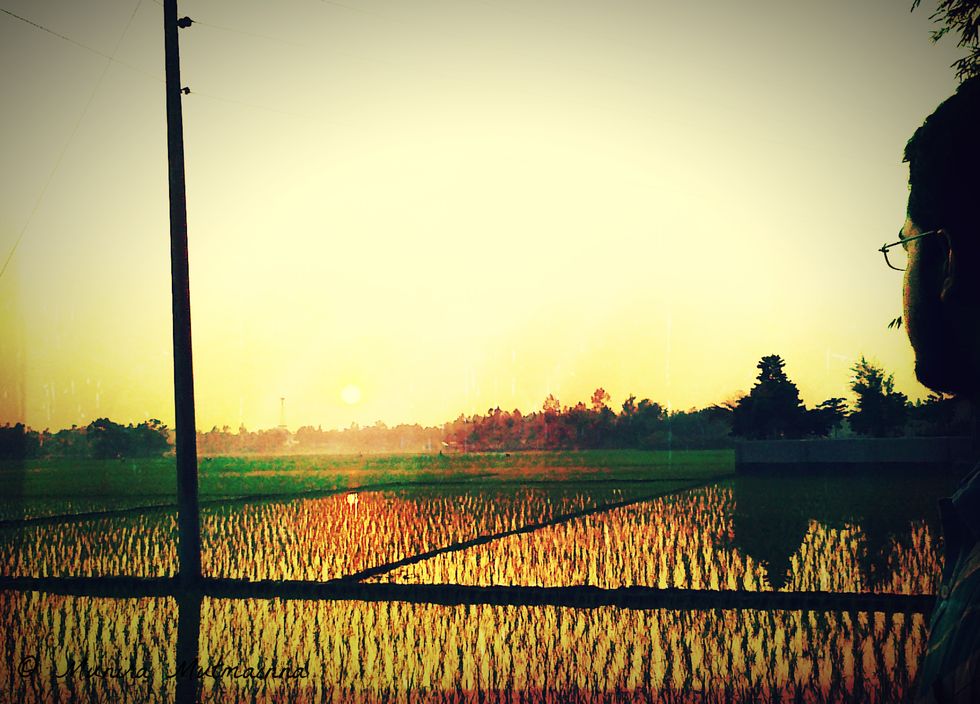Be yourself. Haven't we all heard this phrase time and again? Haven't we all been told, at some point in our lives, to be ourselves, to accept who we are, and let people see the 'true' us and love will follow? And despite that, growing up, haven't we all tried to be anything but ourselves at some point or other? Why do we do that: create this alter-ego or this 'other' persona that we think would make us more acceptable? Why do we think we are undesirable the way we are?
At the risk of coming off as a creature with no social life, I have to admit that one of my highlights this summer was watching "Mean Girls" and "The Perks of Being a Wallflower." I was working on a project and this was probably the first time I tried looking at all these movies and other texts from inside out, analyzing them as the sum of their parts rather than a whole.
One of the many things that stood out to me was how appearances play a huge role in the lives of the characters in these movies. In "Mean Girls," for instance, Lindsey Lohan's character Cady gets friendly with The Plastics (Regina George and her gang) according to Cady's friend Janis' plan to sabotage Regina. However, Cady becomes more and more like them, because being a Plastic means being entitled to certain privileges she couldn't get otherwise. She turns into a different person altogether because of how well her 'other' self is accepted by her peers. She even goes to the extent of pretending to be bad at math and getting low grades to spend time with the school hottie Aaron Samuels when in reality she is naturally brilliant at math. The only person who seems to see right through this pretension is Cady's math teacher Ms. Norbury who says: "I know that having a boyfriend may seem like the most important thing in the world right now, but, you don't have to dumb yourself down to get guys to like you." Of course, Cady doesn't give two hoots to this advice until much later when, ironically, Aaron walks out of her party because she's become just like a clone of Regina and all her efforts to impress him go in vain.
While watching "The Perks of Being a Wallflower," I realized Emma Watson's Sam and Nina Dobrev's Candace deal with a similar situation, despite their characters, actions and settings being much different from Cady's. Charlie's sister Candace continues dating a guy who abuses her while Charlie knows for a fact that she deserves to be treated better. In one party scene, Sam's brother Patrick (played by Ezra Miller) comments seeing Sam with her boyfriend: "I just hope she can stop playing dumb with these guys. I keep telling her, 'Don't make yourself small'". Only Patrick and Charlie (and the audience) seem to see and appreciate Sam for the person she truly is. Both know that she is worth guys who understand and appreciate her smartness and intelligence, but like Charlie's English teacher Mr. Anderson (played by Paul Rudd) puts it:"We accept the love we think we deserve". Much like Cady, Sam and Candace seem to think they have to dumb themselves down or appear somewhat less to be loved.
Watching these have got me thinking since then. These scenes stood out to me because they felt too real, too close to life. I think deep down, we all want to be loved, desired, and appreciated, but we have this conception made up in our mind that this is not possible if we are not what we think others want us to be. Yes, there are ideas and perceptions about how people, and especially girls, should behave. But aren't we just reinforcing those ideas, those perceptions by pretending to be that way? Are we just that? Are we a list of requirements? Are we just supposed to be pretty, or attractive, or dumb/less smart than the people we want us to love? Are we so undeserving that we have to 'make ourselves small', create a lesser version of ourselves to make people desire us? Be yourself, we say, and the rest will follow. If we're so weary of being ourselves because we feel it's ugly and undeserving and unattractive, how do we expect others to find us otherwise?



















